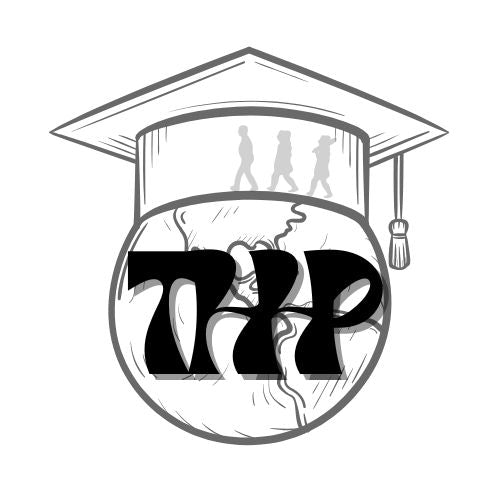
4 Reasons Why a Global History Framework is Key for Middle School Success
Share
As educators, one of our primary goals is to equip students with the knowledge, skills, and mindset necessary to thrive in an increasingly interconnected and complex world. History education plays a crucial role in achieving this aim, especially for middle school and Key Stage 3 students, whose cognitive abilities and perspectives are rapidly evolving. While diving into specific historical events, local histories, or individual figures has traditionally been a focus of history curricula, recent research and best practices in educational psychology suggest that the best approach for young learners is to teach a broad framework of world history. This general overview provides students with a coherent narrative of the past, which they can then explore through independent research and collaborative projects.
The Importance of a Broad Framework
A general chronological framework of world history—spanning from the rise of ancient civilizations to the present day—offers several key benefits that specialized studies cannot replicate.
1. Cognitive Development and Historical Thinking
Educational psychology highlights the importance of cognitive frameworks in learning. According to Piaget's theory of cognitive development, middle school students are in the "concrete operational" stage, where they begin to think logically about concrete events but struggle with abstract concepts (Piaget, 1972). A broad historical framework helps organize this thinking, offering students a mental structure to understand complex events and connect them to broader themes such as power, trade, religion, and conflict. This cognitive scaffolding fosters stronger historical thinking skills, which are crucial for students' ability to analyze and interpret the past critically (Wineburg, 2001).
Furthermore, by teaching a general framework of world history, educators can encourage "historical empathy," where students explore multiple perspectives and understand the broader context of events. This helps develop students' ability to analyze the impact of historical events on different cultures and societies, which is critical for fostering global awareness.
2. Global Awareness and Cross-Cultural Understanding
In an era of globalization, understanding the interconnectedness of the world’s past is more important than ever. A broad chronological framework helps students appreciate the complexity of global events and relationships. According to the National Council for Social Studies (2017), students need to understand not just local or national history, but also the larger processes that have shaped the modern world. This understanding promotes global awareness, which is essential for navigating today’s globalized society. A study by the International Society for Technology in Education (ISTE, 2016) also found that students who are taught global history from multiple perspectives are better prepared for the challenges of an interconnected world.
3. Building 21st Century Skills
The 21st century demands a set of competencies that go beyond rote memorization of dates and facts. Skills such as critical thinking, communication, collaboration, and creativity are essential for success in today’s workplace. According to the Partnership for 21st Century Learning (2019), history education should foster these skills through inquiry-based learning, where students explore themes and topics that resonate with them through research and collaborative projects.
Teaching a general framework of world history encourages students to ask questions, explore different sources, and develop their own understanding of historical events. This process not only deepens their knowledge but also helps them develop the critical thinking and problem-solving skills that are essential in the modern world.
4. Engagement Through Independent Research and Collaborative Projects
Once students grasp the broad narrative of world history, they can delve deeper into specific topics that interest them through independent research and group projects. This approach aligns with Vygotsky’s theory of social constructivism, which posits that students learn best when they engage in social interaction and active problem-solving (Vygotsky, 1978). By engaging in collaborative projects, students learn how to communicate and work with peers, while independent research fosters self-direction and inquiry-based learning.
Moreover, allowing students to investigate historical themes or periods that they find compelling can increase engagement and intrinsic motivation (Deci & Ryan, 2002). This personalized approach allows students to pursue their interests within the context of a broader historical framework, enhancing their overall learning experience.
The Pitfalls of Narrow Focus on Specific Topics
While focusing on local history or specific events can provide deep insight into certain areas, it can limit students' understanding of the larger picture. Without a general framework, students may struggle to make connections between different periods or cultures. For example, focusing solely on the history of one nation or historical figure may obscure the influence of global events, such as the rise of empires, technological innovations, or cultural exchanges that have shaped that nation's history. Additionally, such a narrow focus can lead to a fragmented understanding of history, which may hinder students’ ability to appreciate the complex, interconnected world they live in.
Evidence from Best Practices in History Education
Numerous studies have demonstrated the effectiveness of a broad, framework-based approach to history education. A report by the National Center for History in the Schools (2001) found that students who were taught world history from a global perspective performed better on assessments of historical understanding and critical thinking. Additionally, research by the American Historical Association (2019) found that curricula that emphasize broad historical frameworks foster students' ability to connect past events to present-day issues, improving their overall historical literacy.
In conclusion, the most effective way to teach history in middle school and Key Stage 3 is by providing students with a comprehensive chronological framework of world history. This approach enhances cognitive development, promotes global awareness, builds 21st-century skills, and encourages engagement through independent research and collaborative projects. By giving students the tools to understand the larger historical narrative, we equip them to explore the past more deeply and make meaningful connections to the present.
__________________________________________________________________________
For educators seeking to implement a world history program that aligns with these best practices, consider investing in The Human History Project. This comprehensive program offers a structured yet flexible approach to teaching world history, providing middle school and Key Stage 3 students with the framework they need to understand the interconnectedness of past events and develop the skills necessary for success in the 21st century. Visit https://millerskills.co.uk/pages/the-human-history-project to learn more and purchase your resources today.
References
American Historical Association. (2019). Teaching history in the 21st century. Retrieved from https://historians.org
Deci, E. L., & Ryan, R. M. (2002). Handbook of self-determination research. University of Rochester Press.
International Society for Technology in Education (ISTE). (2016). Empowering learners through global history education. ISTE.
National Center for History in the Schools. (2001). The importance of a world history framework. University of California.
National Council for Social Studies. (2017). The role of social studies in the 21st century. NCSS.
Partnership for 21st Century Learning. (2019). Framework for 21st century learning. P21.
Piaget, J. (1972). The psychology of the child. Basic Books.
Vygotsky, L. S. (1978). Mind in society: The development of higher psychological processes. Harvard University Press.
Wineburg, S. (2001). Historical thinking and other unnatural acts: Charting the future of teaching the past. Temple University Press.
